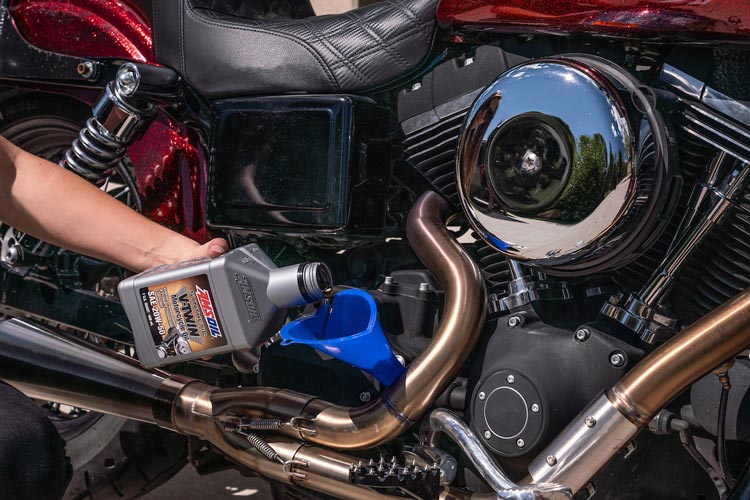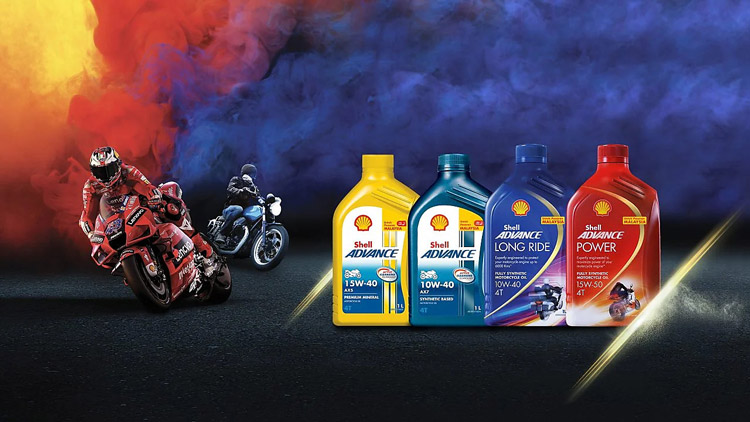When operating a motorbike, choosing the right lubricant is an extremely important factor to ensure engine performance and longevity. Lubricating oil is not only a lubricant, but also has the role of cooling, cleaning and protecting important parts in the engine. Using unsuitable lubricants can cause problems and rapid wear and tear of the engine, affecting the performance and durability of the motorbike.

Factors to consider when choosing motorbike oil
- Type of lubricant: First, determine the appropriate type of lubricant for your motorbike. There are two common types of lubricants: synthetic lubricants and mineral lubricants. Synthetic oils typically have better performance, greater heat resistance and better protection in harsh conditions. Mineral oils are suitable for older engines or in cool climates.
- Viscosity: Oil viscosity is another important factor to consider. Viscosity is measured in “SAE” (Society of Automotive Engineers) units. The higher the SAE number, the thicker the oil and vice versa. For motorcycles, check the manufacturer’s instructions for the appropriate viscosity for your engine. Improper viscosity can cause wear, wear and poor lubrication.
- Oil change interval: Time and number of kilometers traveled to change oil are also important factors. According to the manufacturer’s instructions, follow the correct oil change cycle to ensure the oil is always in the best condition. Regular oil changes help remove sediment, dirt and decay from the engine.

The secret to choosing the right motorbike oil
- Learn about the manufacturer’s requirements: Check the manufacturer’s owner’s manual to find out the right oil type and viscosity for your motorcycle. They have detailed information about the technical requirements and suggestions for their product line.
- Learn about operating conditions: Consider environmental conditions and how you use your motorcycle. If you often travel in the harshest conditions such as noisy cities and hot climates, synthetic oil may be a better choice to ensure engine lubrication and protection.
- Learn about lubricant reviews and ratings: Consult experts and other users about different lubricant brands and productst. These ratings and reviews can provide important information about a lubricant’s performance, reliability and protection.
- Let’s look at the added value: In addition to the basics like oil type and viscosity, consider the additional features and technologies the oil can provide. For example, there are some lubricants designed to reduce friction and noise, provide optimal lubrication under severe conditions, or have better oxidation resistance.

Choosing the right motorbike oil is an important factor to ensure the vehicle runs smoothly and durably. By understanding the manufacturer’s requirements, operating conditions, product reviews and learning about added value, you can choose the best lubricant for your motorcycle. Don’t forget to follow the correct oil change cycle to ensure the oil is always in the best condition and protect the engine for a long time.






